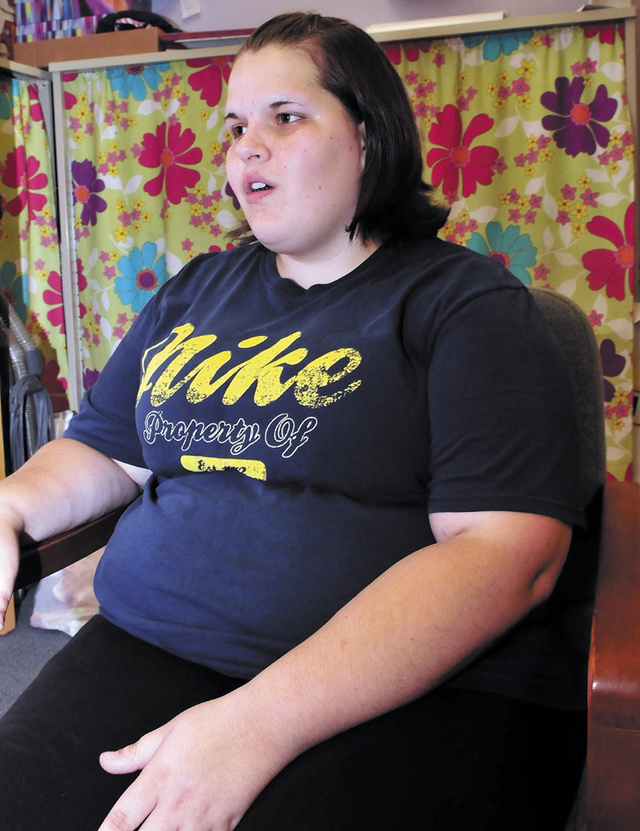WATERVILLE — Danielle Watkins is anxious and worried.
She’s an 18-year-old mother of a toddler, trying to finish up her high school diploma. Income at home is scarce and her family goes to a food bank. She is using benefits from the federal Women, Infants and Children Program to help pay for food for her 2-year-old daughter, Mikayla Owens.
With those benefits in danger of running dry because of the federal government shutdown, it’s almost too much to handle.
“I’m not sleeping well at all,” Watkins said. “I can’t really focus on school or anything else if I know my daughter may not get food. Sometimes I just space off during class, wondering if I’m going to have dinner to feed my daughter tonight.”
The partial federal government shutdown is threatening to stifle funding for pregnant or postpartum women and their young children from the federally funded nutritional food program, known as WIC.
The program helps about 24,500 Maine women and their children by providing financial assistance in buying nutritional foods.
Women must be pregnant, postpartum or nursing to receive benefits, while their children can stay on until age 5. To be eligible for the program, an applicant must have an income at or below 185 percent of the poverty line, which for a family of four is $23,550 a year, according to the Department of Health and Human Services.
The program in Maine, funded the U.S. Department of Agriculture, has enough money to run for three or four weeks and anyone who receives a check within that time will be able to deposit it, according Lisa Hodgkins, the program’s director in Maine. The main WIC office is in Augusta, while regional locations in each county are open for recipients to meet every one to three months.
Watkins attends high school at the Maine Children’s Home in Waterville, where she also attends the Teen Parent School Program. While some mothers will receive their quarterly food vouchers next week, Watkins is scheduled to receive her benefit in three weeks — on Oct. 24.
That’s when benefits may be in danger if the government shutdown continues.
In addition to her daughter, Watkins lives with her fiance, James Owens; her father; her stepmother; and a younger sister. She said her father recently started a new full-time job, her stepmother works part time and her fiance is looking for work. They plan to marry in March. The family visits a food bank twice a month to supplement what they buy, she said.
If the government shutdown continues, Watkins said, she’ll have to look for a job, which would be difficult to fit into her full-time school schedule.
“I want to have enough food in my house for my daughter,” Watkins said. “I’m going to need to look for a job, but that’s hard because I’m in school and I want to graduate.”
Watkins said she hopes to attend Kennebec Valley Community College and study occupational therapy assistance.
Hodgkins said she’s hopeful that the shutdown will end before the federal money runs out.
“We’re cautiously optimistic that funds will continue to be available for us,” she said. “We certainly have contingency plans in place, but the situation is not clear enough at this time to share those.”
Grocery stores and markets have to be authorized to accept the WIC program’s benefits, and that helps ensure that participants get the correct kind and amounts of food they need. Mothers with newborns meet monthly for checkups at local WIC program offices and receive monthly checks, which cover most of the payment for formula. Mothers who are nursing get tailored shopping lists to encourage healthy nutrients for the milk.
Once the children outgrow formula, the mothers and their children attend quarterly meetings to make sure children are healthy and receiving the nutrition they need.
Watkins, meanwhile, is trying to focus on her school work while trying to figure out how to feed her daughter.
“I don’t really want to confront it, because it’s so stressful,” she said. “I’m just thinking about how to feed my daughter.”
Jesse Scardina — 861-9239
jscardina@centralmaine.com
Send questions/comments to the editors.


